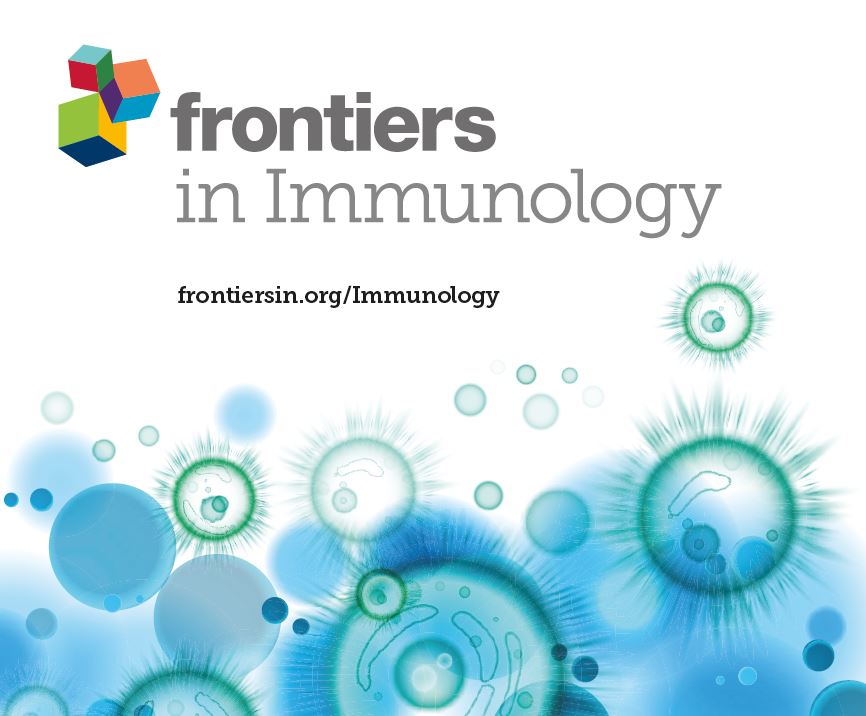Evaluation of the efficacy and safety of first- and second-line immunotherapy in patients with metastatic colorectal cancer: a systematic review and network meta-analysis based on randomized controlled trials
IF 5.7
2区 医学
Q1 IMMUNOLOGY
引用次数: 0
Abstract
BackgroundA multitude of randomized controlled trials (RCTs) conducted in both the initial and subsequent treatment settings for patients diagnosed with metastatic colorectal cancer (mCRC) have provided clinical evidence supporting the efficacy of immunotherapy with the use of immune checkpoint inhibitors (ICIs). In light of these findings, the U.S. Food and Drug Administration (FDA) has authorized the use of several ICIs in specific subpopulations of mCRC patients. Nevertheless, there remains a dearth of direct comparative RCTs evaluating various treatment options. Consequently, the most effective ICI therapeutic strategy for microsatellite-stable (MSS) subgroup and microsatellite instability (MSI) subgroup in the first- and second-line therapies remains undefined. To address this gap, the present study employs a Bayesian network meta-analysis to ascertain the most effective first- and second-line ICI therapeutic strategies.MethodsA comprehensive literature search was conducted across multiple databases, including PubMed, EMBASE, Cochrane Library, and Web of Science, with the retrieval date ranging from the databases’ inception to August 20, 2024. A total of 875 studies were identified, and seven were ultimately included in the analysis after a screening process. A systematic review and network meta-analysis were conducted on the basis of the search results.ResultsThis comprehensive analysis, comprising seven RCTs, evaluated first-line and second-line immunotherapy regimens in 1,358 patients diagnosed with mCRC. The treatments under investigation consisted of five initial treatments, including three focusing on MSS patients and two on MSI patients, as well as two secondary immunotherapy regimens, both focusing on MSS patients. A total of 1051 individuals underwent first-line treatment, while 307 received second-line treatment. The application of ICIs proved to offer varying degrees clinical benefits when compared to standard-of-care therapy alone, both in two subgroups of the first and the second treatment phases. Of particular note is the performance of Nivolumab combination with ipilimumab, which demonstrated superior efficacy in improving progression-free survival (PFS) (HR=0.21; 95% CI, 0.13-0.34),. Moreover, the treatment demonstrated an optimal safety profile, with a relatively low risk of adverse events (OR = 0.33; 95% CI, 0.19–0.56), compared to other first-line treatment modalities for MSI subgroup. Regarding MSS subgroup, the improvement of PFS by Nivolumab plus standard-of-care (SOC) was relatively significant (HR = 0.74; 95% CI, 0.53-1.02). In the realm of second-line therapies for MSS subgroup, the administration of Atezolizumab plus SOC has proven to be an effective approach for prolonging PFS, exhibiting an HR of 0.66 (95% CI, 0.44–0.99). These findings underscore the clinical benefits and safety profiles of ICIs in the treatment of mCRC across various treatment lines.ConclusionsThe clinical application of ICIs in both first- and second-line treatment strategies for patients with mCRC yields substantial therapeutic benefits. A detailed assessment in this study indicates that first-line treatment with Nivolumab combination with ipilimumab may represent an efficacious and well-tolerated therapeutic approach for MSI subgroup. In terms of MSS subgroup in first-line therapy, Nivolumab plus SOC may be a relative superior choice. In the context of second-line therapy for MSS subgroup, it is evident that a combination of Atezolizumab and SOC represents a preferable option for enhancing PFS. Furthermore, it is noteworthy that other ICIs treatment regimens also exhibit great value in various aspects, with the potential to inform the development of future clinical treatment guidelines and provide a stronger rationale for the selection of ICIs in both first- and second-line therapeutic strategies for mCRC.Systematic review registration评估转移性结直肠癌患者一线和二线免疫疗法的疗效和安全性:基于随机对照试验的系统综述和网络荟萃分析
背景针对确诊为转移性结直肠癌(mCRC)患者的初始治疗和后续治疗进行的大量随机对照试验(RCT)提供了支持使用免疫检查点抑制剂(ICIs)进行免疫疗法疗效的临床证据。鉴于这些研究结果,美国食品和药物管理局(FDA)已授权在特定亚群的 mCRC 患者中使用几种 ICIs。然而,评估各种治疗方案的直接对比性 RCT 研究仍然十分匮乏。因此,在一线和二线治疗中,针对微卫星稳定(MSS)亚群和微卫星不稳定(MSI)亚群最有效的 ICI 治疗策略仍未确定。为了填补这一空白,本研究采用贝叶斯网络荟萃分析法来确定最有效的一线和二线 ICI 治疗策略。方法在多个数据库(包括 PubMed、EMBASE、Cochrane Library 和 Web of Science)中进行了全面的文献检索,检索日期从数据库建立之初到 2024 年 8 月 20 日。共确定了 875 项研究,经过筛选,最终有 7 项研究被纳入分析。根据检索结果进行了系统综述和网络荟萃分析。结果这项综合分析包括七项RCT研究,评估了1358名确诊为mCRC患者的一线和二线免疫疗法方案。研究的治疗方法包括五种初始治疗,其中三种针对MSS患者,两种针对MSI患者,以及两种二线免疫治疗方案,均针对MSS患者。共有 1051 人接受了一线治疗,307 人接受了二线治疗。事实证明,在第一和第二治疗阶段的两个亚组中,应用 ICIs 与单纯的标准疗法相比,都有不同程度的临床疗效。特别值得注意的是,Nivolumab与ipilimumab的联合治疗在改善无进展生存期(PFS)方面表现出卓越的疗效(HR=0.21;95% CI,0.13-0.34)。此外,在MSI亚组中,与其他一线治疗方法相比,该疗法具有最佳的安全性,不良事件风险相对较低(OR=0.33;95% CI,0.19-0.56)。就MSS亚组而言,Nivolumab联合标准治疗(SOC)对PFS的改善相对显著(HR = 0.74; 95% CI, 0.53-1.02)。在MSS亚组的二线疗法领域,Atezolizumab联合SOC被证明是延长PFS的有效方法,HR为0.66(95% CI,0.44-0.99)。结论 ICIs 在 mCRC 患者一线和二线治疗策略中的临床应用产生了巨大的治疗效果。本研究的详细评估表明,Nivolumab联合ipilimumab的一线治疗对于MSI亚组可能是一种有效且耐受性良好的治疗方法。对于一线治疗中的MSS亚组,Nivolumab联合SOC可能是相对更优的选择。在 MSS 亚组的二线治疗中,Atezolizumab 和 SOC 的组合显然是提高 PFS 的更优选择。此外,值得注意的是,其他ICIs治疗方案也在各方面表现出巨大价值,有可能为未来临床治疗指南的制定提供参考,并为mCRC一线和二线治疗策略中ICIs的选择提供更有力的依据。系统综述注册https://www.crd.york.ac.uk/prospero/#recordDetails,标识符为CRD42024543400。
本文章由计算机程序翻译,如有差异,请以英文原文为准。
求助全文
约1分钟内获得全文
求助全文
来源期刊

Frontiers in Immunology
IMMUNOLOGY-
CiteScore
9.80
自引率
11.00%
发文量
7153
审稿时长
14 weeks
期刊介绍:
Frontiers in Immunology is a leading journal in its field, publishing rigorously peer-reviewed research across basic, translational and clinical immunology. This multidisciplinary open-access journal is at the forefront of disseminating and communicating scientific knowledge and impactful discoveries to researchers, academics, clinicians and the public worldwide.
Frontiers in Immunology is the official Journal of the International Union of Immunological Societies (IUIS). Encompassing the entire field of Immunology, this journal welcomes papers that investigate basic mechanisms of immune system development and function, with a particular emphasis given to the description of the clinical and immunological phenotype of human immune disorders, and on the definition of their molecular basis.
 求助内容:
求助内容: 应助结果提醒方式:
应助结果提醒方式:


